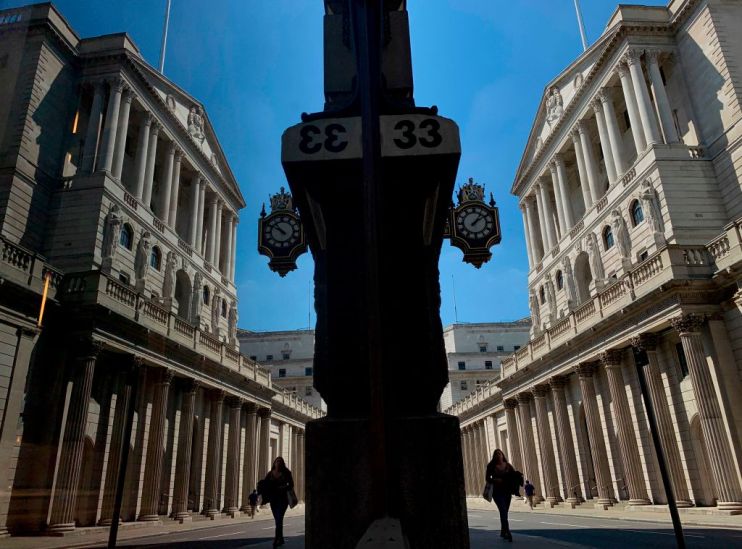Markets live: FTSE 100 and US stocks drop sharply as US-China tensions flare

The FTSE 100 and US stocks fell after US-China relations soured and rising coronavirus cases threatened the global economic recovery.
London’s blue-chip index closed 1.4 per cent lower at 6,124 points, despite some better-than-expected economic data. The FTSE 250 closed 1.3 per cent down.
Read more: Asian shares retreat as US-China tensions sour
Germany’s Dax slid two per cent while France’s CAC dropped 1.5 per cent. The continent-wide Stoxx 600 slipped 1.7 per cent.
On Wall Street, the S&P 500 dropped 0.5 per cent. The Dow Jones also fell 0.5 per cent and the Nasdaq slipped 0.7 per cent.
Markets stayed in the red all day after China this morning announced the closure of the US’s consulate in Chengdu, south-west China.
Beijing said it was a direct retaliation for the US’s order that it close its consulate – a kind of mini-embassy – in Houston, Texas.
“The US move seriously breached international law, the basic norms of international relations, and the terms of the China-US Consular Convention. It gravely harmed China-US relations,” China’s foreign ministry said in a statement.
“Fears are growing over the stability of the phase one trade deal,” said Fiona Cincotta, market analyst at City Index, referencing the preliminary agreement the two sides struck in January.
FTSE 100 drops despite strong data
The FTSE 100 was briefly buoyed by better-than-expected survey data this morning. But optimism soon gave way in the face of geopolitical tensions and rising coronavirus cases.
The IHS Markit/Cips preliminary “composite” PMI which measures the health of the private sector hit 57.1 in July from 47.7 in June.
Duncan Brock, group director at the Chartered Institute of Procurement & Supply (Cips), said the overall July rebound “was fuelled by the release of pent up demand”.
However, Andrew Wishart, UK economist at Capital Economics, questioned the reliability of the PMI survey. He said: “It doesn’t suggest that the economy is anywhere near back to normal.”
It came as official figures showed UK retail sales almost recovered in June from their staggering drops during lockdown. The volume of retail sales jumped 13.9 per cent from May to June.
Morrisons and Tesco shares both rose more than two per cent after the figures were released. Sainsbury’s climbed around one per cent.
But FTSE 100 firms with the most to lose from a global slowdown and geopolitical tensions dropped. Investment giant M&G dropped six per cent. British Airways-owner IAG fell 4.8 per cent.
Gold ends week on a high
As clouds gathered over global markets, gold rose past the $1,900 barrier for the first time since 2011. Spot gold slipped back to $1,899 per ounce this afternoon.
The safe-haven commodity has been boosted in recent days by economic worries, low bond yields and the prospect of more economic stimulus. The yellow metal is seen as a hedge against inflation and currency debasement.
David Madden, market analyst at trading platform CMC Markets, added that the “bearish trend” of the dollar has helped. The greenback has fallen to around two-year lows amid the resurgence of coronavirus worries and ahead of a fraught presidential election.
The dollar was down 0.3 per cent on its index against other currencies this afternoon.
The euro rose to $1.163. It continued to test its highest levels since 2018 after the EU signed a huge €750bn (£680bn) coronavirus recovery fund.
Rising US cases weigh on global markets
The FTSE 100 and global stocks have been struggling to maintain their stellar rally in recent days amid an acceleration in global coronavirus cases. Surging cases in the US have been a particular worry.
Yesterday, US assistant health secretary Brett Giroir said the country has around 200,000 infections daily. Virus deaths rose in the US by more than 1,000 for a third consecutive day.
Data yesterday showed the number of Americans filing for unemployment benefits unexpectedly rose last week for the first time in nearly four months.
US investors were also shaken today by gloomy earnings news at the start of the session. Shares in American Express sunk after it reported quarterly revenue fell below expectations.
The selloff of big tech stocks continued for a second day, with Microsoft and Apple falling.
Read more: UK retail sales surge close to pre-lockdown levels in June recovery
Jeffrey Halley, senior market analyst at currency firm Oanda, said investors were taking profits before an uncertain weekend.
“Having rallied strongly this week, it probably didn’t take much for investors with itchy trigger fingers to head for the exit door,” he said.